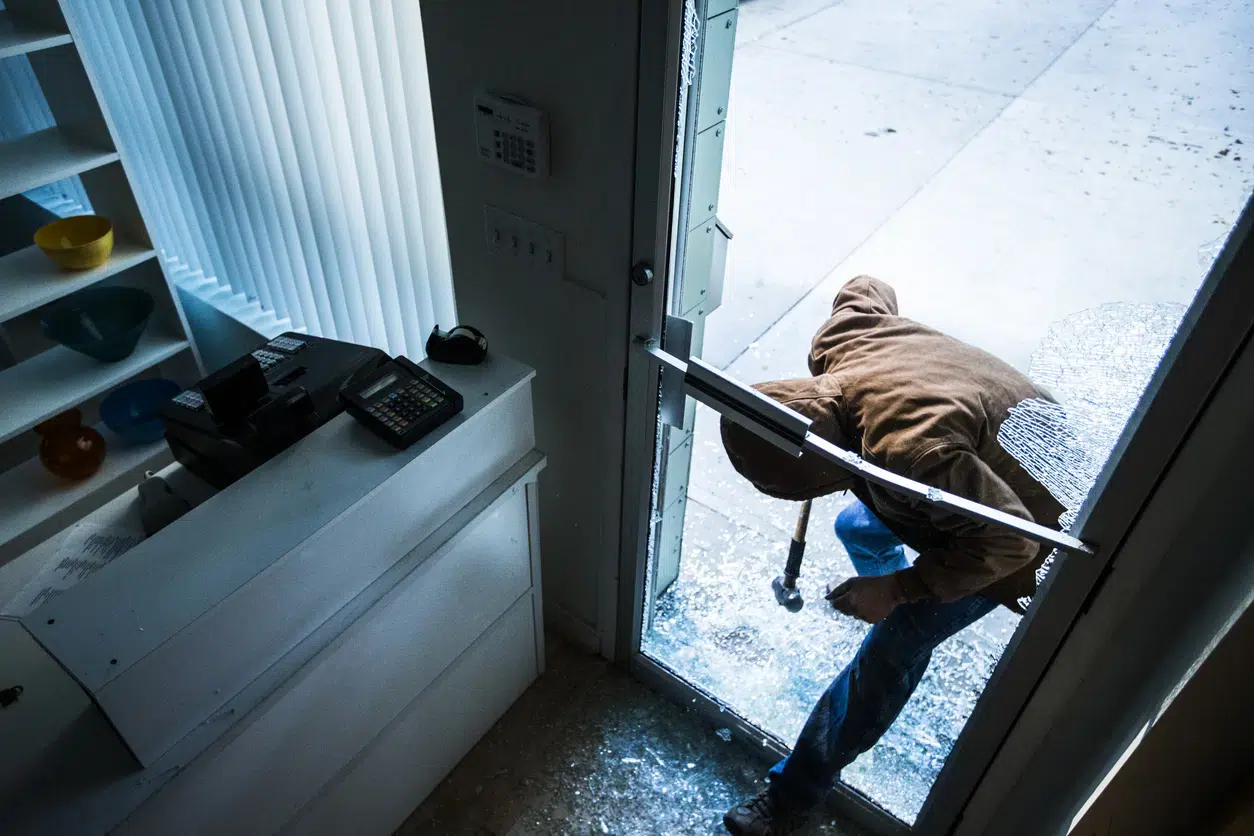Helping Clients fight burglary charges
In Virginia, burglary is defined as the forced entry into a building, vehicle, or any enclosed structure to commit another crime. That intended crime is often theft, but the forced entry may also be for the purposes of any other crime.
Committing an actual theft – or any other crime – is not required to convict someone of burglary. Simply entering into a structure with the intent to commit a crime is sufficient to constitute burglary in Virginia. If you’re facing these charges, a skilled burglary lawyer can help you challenge the prosecution’s claims and protect your legal rights.
How are burglaries categorized by virginia law?
Burglaries are divided into two main categories under Virginia law – common law burglary and statutory burglary – and several subcategories. Common law burglary is the illegal entry into someone’s home at night (from thirty minutes after sunset until thirty minutes before sunrise).
Common law burglary is a Class 3 felony, punishable upon conviction with 5 to 20 years in prison and/or a fine of $100,000. If the burglar carried a deadly weapon, the charge is armed burglary, a Class 2 felony punishable upon conviction with 20 years to life and a $100,000 fine.
If you’re facing any of these charges, a knowledgeable Fairfax burglary lawyer can explain your options and help you build a strong defense. Working with an experienced burglary lawyer early in the process can make a critical difference in how your case is resolved.
What constitutes “Statutory” burglary?Statutory burglaries in Virginia are divided into three subcategories:
- Breaking and entering with intent to commit murder, rape, robbery or arson: A conviction is punishable with 5 to 20 years in prison and/or a fine of $100,000.
- Breaking and entering with intent to commit larceny, assault and battery, or a felony other than murder, rape, robbery, or arson: A conviction is punishable with 1 to 20 years in prison and/or a fine of up to $2,500.
- Breaking and entering a dwelling with the intent to commit a misdemeanor other than trespass or assault and battery: A conviction is punishable with 1 to 5 years in prison, and/or a fine of up to $2,500.
Given the range of charges and penalties, working with an experienced burglary lawyer in Fairfax is essential to ensure your rights are protected throughout the legal process.

What About other burglary-related charges?
Virginia also prosecutes these other forms of burglary:
- Entering a bank with a deadly weapon with the intention of stealing money, bonds, or notes is a Class 2 felony.
- Breaking and entering into a railroad car, aircraft, or truck can be charged as a Class 3 felony.
- The illegal possession of burglary tools is a Class 5 felony in Virginia.
- Theft from pay phones, parking meters, and vending machines is a Class 1 misdemeanor for a first offense and a Class 6 felony for a second offense.
- Additionally, breaking and entering to destroy or damage real or personal property without the intent to steal is considered criminal mischief, which is charged as a Class 1 misdemeanor or as a Class 6 felony depending on the value of the property that’s damaged.
If you’re charged with any of these crimes, a skilled burglary lawyer can help assess the details of your case and guide you through your legal options. Consulting a Fairfax burglary lawyer as early as possible gives you the best chance at a favorable outcome.
How will a fairfax defense lawyer help you fight a burglary charge?
If you are charged with any form of burglary in or near the Fairfax area, you can’t afford to be represented by the wrong lawyer. Instead, you’ll need to speak with a Fairfax burglary attorney who has substantial experience and a record of success on behalf of burglary clients.
What steps will your defense attorney take? In most burglary cases, the first step is trying to have the charge dropped by the prosecutor or dismissed by the judge.
A burglary charge may be dropped or dismissed if police officers violated your legal rights during their investigation of the burglary or during a search, interrogation, or arrest.
If a burglary charge can’t be dropped or dismissed, and if you are the defendant, you’ll probably face a choice. If you genuinely believe that you are not guilty of burglary, you should dispute the charge and insist on a trial by jury.
However, if the state’s evidence against you is persuasive and a conviction is a foregone conclusion, your burglary attorney may suggest negotiating for – and accepting – the best possible plea bargain arrangement.

What defenses may be offered againt a burglary allegation?
If your burglary case goes to trial, a prosecutor will have to prove your guilt beyond a reasonable doubt in order to convict you. In many burglary prosecutions, a good Fairfax burglary attorney may be able to find flaws in the state’s case and cast doubt on the evidence against you.
Your burglary lawyer in Fairfax might offer one of these arguments in your defense:
1- The evidence is misleading: If your fingerprints were found at the scene of a burglary, your attorney may be able to prove that you were there at another time and for another reason.
2- You’ve been misidentified: Someone who looks like you was in fact responsible for the burglary.
3- The accusation was fabricated: Innocent people are sometimes accused of crimes that never even happened because of fabricated accusations by persons seeking to cause trouble or get revenge.
Fairfax criminal defense attorney The Law Office of Scott C. Nolan, PLLC focuses his practice entirely on representing clients charged with crimes – including burglary crimes – in Northern Virginia. He has represented thousands of clients accused of serious charges, and he’s established a reputation for aggressive defense representation and for legal excellence.
Fairfax Burglary Defense Attorney FAQs
Burglary in Virginia involves unlawfully entering a building or dwelling with the intent to commit a felony or any larceny. A Fairfax Burglary Defense Attorney can clarify the legal specifics.
Burglary involves unlawful entry with the intent to commit a crime, whereas robbery involves taking property directly from a person through force or intimidation.
Penalties depend on the severity of the offense and prior criminal history and can include fines, prison time, probation, and restitution.
Defenses may include lack of intent, mistaken identity, consent to enter, or insufficient evidence. An experienced lawyer can develop a defense strategy tailored to your case.
In some cases, charges may be reduced through negotiation, such as lowering a felony burglary charge to a misdemeanor or a lesser offense, potentially reducing penalties.
The process typically includes arrest, arraignment, pre-trial hearings, plea negotiations, trial (if necessary), and sentencing. A lawyer can guide you through each step.
Yes. Burglary is a serious criminal charge, and legal representation is crucial for protecting your rights, challenging evidence, and seeking the best possible outcome.
Yes. Convictions can result in incarceration, probation, fines, and restitution, depending on the nature of the crime and your criminal history.
A conviction can impact employment, housing, professional licenses, and personal reputation. Legal guidance can help mitigate these consequences.
Evidence may include surveillance footage, fingerprints, eyewitness testimony, stolen property, and other documentation. A lawyer can challenge the validity or admissibility of evidence.
Depending on the case, alternatives such as probation, community service, or diversion programs may be available.
Prompt legal action is crucial to protect your rights and meet legal deadlines. Contacting a lawyer immediately ensures timely responses and strategy planning.
Restitution involves compensating the victim for damages or stolen property. Courts may require restitution in addition to fines or prison time.
Expungement may be possible under certain circumstances, such as dismissed charges or acquittals. A lawyer can assess eligibility and guide the process.
Scott Nolan has experience defending clients against burglary charges, negotiating plea deals, challenging evidence, and seeking reduced sentences or dismissals to protect your future.


